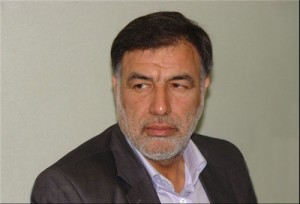 TEHRAN (FNA)- A senior Iranian lawmaker asked the British parliamentary delegation which is due to visit Tehran on Tuesday to respect the diplomatic codes of behavior to prevent the insulting attitude that was shown by a European parliamentary delegation during its recent trip to Iran.
TEHRAN (FNA)- A senior Iranian lawmaker asked the British parliamentary delegation which is due to visit Tehran on Tuesday to respect the diplomatic codes of behavior to prevent the insulting attitude that was shown by a European parliamentary delegation during its recent trip to Iran.�On the meetings of this group (the British parliamentarians) in Iran, the necessary agreements have been made based on the Islamic Republic�s protocols and there is no concern in this regard,� Head of Iran-Britain Parliamentary Friendship Group Abbas Ali Mansouri Arani�told FNA on Monday.
He referred to the undiplomatic behavior shown during a recent visit to Iran by a European delegation who met two Iranian dissidents in the Greek embassy in Tehran in violation of the Islamic Republic's laws, and said, �We have issued the necessary notifications to the British parliamentary delegation (in advance) and informed them that their meetings should be made within the framework of the (diplomatic) protocols, and that if any meeting is made outside this framework, we won�t accept (to host) the group,� Mansouri Arani stressed.
Former British Foreign Secretary Jack Straw is due to visit Tehran at the head of a parliamentary delegation tomorrow to formulate a new roadmap to broaden the bilateral ties between the two countries.
The British parliamentary delegation would have meetings with the members of Iran-Britain Parliamentary Friendship Group, Speaker Ali Larijani, Chairman of the parliament�s National Security and Foreign Policy Commission Alaeddin Boroujerdi and a number of other political officials.
The trip will be made after a delegation of the European parliament secretly met with lawyer Nasrin Sotoudeh and film director Jafar Panahi in the Greek Embassy during its recent visit to Tehran. The two were tried and convicted for their involvement in the unrests following the 2009 presidential election.
The move was strongly condemned by high-ranking Iranian officials.
After the official announcement of the election results on June 13, 2009, supporters of former President Mahmoud Ahmadinejad's main rival Mir Hossein Moussavi - who rejected the results - took to the streets of Tehran and other cities in daily rallies.
But later, millions of Iranian people as well as the Iranian police, the Islamic Revolution Guards Corps (IRGC) and Basij (mobilized volunteer) forces staged a strong presence and ended weeklong demonstrations and unrests in the capital.
Also, on December 30, 2009, pro-government rallies were staged by millions of Iranians after a group of opposition supporters - including those who took part in the post-election unrests in June - took advantage of the highly revered religious day of Ashoura on December 27 - the anniversary of the martyrdom of Imam Hossein (AS), the grandson of Prophet Mohammad (PBUH) and Shiite Muslims' third Imam - to chant slogans against top Iranian government officials.
On the same day (December 27), tens of millions of Iranians were on the streets to take part in annual massive processions across the country to mark the martyrdom anniversary of Imam Hossein (AS).
Clashes began after demonstrators started clapping and showing happiness, insulting the mourning people who were also in the streets to commemorate Imam Hossein's martyrdom anniversary.
In response to the Ashoura unrest, millions of Iranians took to the streets on Wednesday Dec. 30, 2009, demanding that rioters be brought to justice.
Later, Iran revealed that a number of western states had played a major role in stoking the unrests both after the presidential elections and on the Ashoura Day, singling out Britain and the US for meddling. Tehran also revealed strong evidence substantiating the interfering role of several foreign embassies and diplomats in stirring riots in Iran.
By Fars News Agency�
The Iran Project is not responsible for the content of quoted articles.










